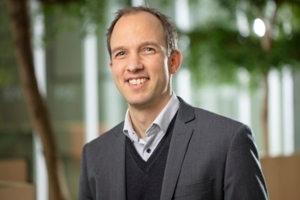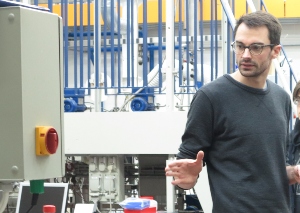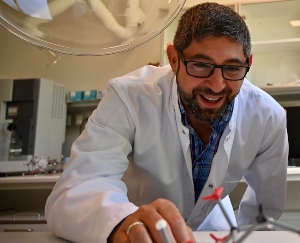Independent Research Fund Denmark grants a total of DKK 696 million to fund original ideas. 23 researchers from DTU receive funding for new projects, including with focus on plastics, network data, and enzymes.
Independent Research Fund Denmark supports 202 different research projects with total funding of DKK 696 million. The projects have been specially selected because they present new ideas on how to intensify climate change initiatives and examine the correlation between media, people, and machines. Together, 23 researchers from DTU have received DKK 80.2 million in funding for their research.
“Denmark has a strong research base, and—year after year—we’re seeing that the level is not only high, but excellent. In fact, the number of applications and grants have been increasing in recent years – due to both great interest and high quality. Especially for the funds granted this year, we’ve seen a diversity and a trend towards social commitment in the projects, several of which focus on our common good,” says David Dreyer Lassen, Chairman of the Board of Directors in Independent Research Fund Denmark.
The new grants cover a wide range of specialist fields and are awarded to the full spectrum of research environments in Denmark. The 23 DTU researchers have received grants in the categories Technology and Production, Nature and Universe, and Health and Disease. Here are three of the project descriptions:

Professor Morten Mørup from DTU Compute receives DKK 5.9 million for the project ‘Learning the Structure and Dynamics of Complex Networks’.
Our societies are becoming increasingly digitally integrated in line with the diffusion and improvement of the technological development in information technology and digital services. This digitalization of our behaviour is transforming all aspects of our society, while we face a huge challenge in understanding the structure and predicting the conduct of these complex dynamic systems.
With inspiration from time series analysis, this project will develop algorithms which—using large dynamic network data volumes—can recognize the underlying patterns and their developments. The aim is to contribute to creating an understanding of the underlying structure of these systems and increasing our ability to predict their behaviour.
The developed tools will be applied to a number of important challenges in our digital society, from our ability to understand the dynamics and detect trends in knowledge production at an early stage to predicting how information—including misinformation—is spread, and filter bubbles occur.

Assistant Professor Martin Høj from DTU Chemical Engineering receives DKK 2.9 million for the project ‘Chemical recycling of plastics through direct synthesis of monomers from CO2’.
To make plastic consumption more sustainable, we want to recycle plastics, but only a small proportion of household-sorted plastics is recycled directly by remelting into new products. The rest is burned in incinerators, and the energy is recovered for electricity and district heating, which emit fossil greenhouse gases, primarily CO2. However—with chemical recycling—CO2 can be collected and converted into new plastics.
This project develops and examines special catalyst mixtures for precisely this purpose in order to develop a simple and efficient process for production of new plastic molecules from CO2 to increase overall recycling of plastics.

Professor MSO Maher Abou Hachem from DTU Bioengineering receives DKK 5.3 million for the project ‘Enzymatic removal of extended blood group antigens for truly universal blood transfusions’.
The great need for blood transfusions is expected to increase even more heavily due to limited blood donation and an increasing proportion of elderly patients—especially in chemotherapy. Maintenance of the blood centres’ different blood type stores is also very costly.
This project will explore the possibility of using enzymes to convert blood types A and B into the universal donor type O. The enzymes will be tailored for the glycans of the A-antigen and B-antigen types, making the conversion of red blood cells into the universal type O feasible.
The project aims to make blood transfusion much less expensive and more accessible, as well as to minimize waste of high-cost stored blood.